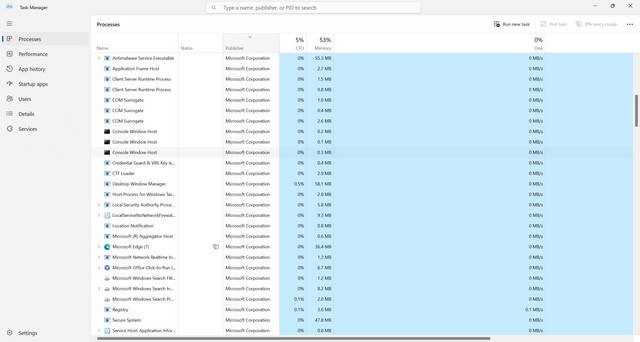Eventvwr.exe: What Is & Should I Remove It?
Eventvwr.exe is a system file that is an integral part of the Windows operating system. It is responsible for managing and displaying event logs, which record important system events and errors. While Eventvwr.exe is a legitimate file, it is not uncommon for malware or viruses to disguise themselves as this file to avoid detection. In this article, we will explore what Eventvwr.exe is, how it works, and whether or not you should remove it from your system.

What is Eventvwr.exe?
Eventvwr.exe, also known as Event Viewer, is a built-in Windows application that allows users to view and analyze event logs. Event logs are records of significant events that occur on a computer, such as system errors, application crashes, and security-related events. These logs are essential for troubleshooting and diagnosing issues on a Windows system.
Event Viewer provides a graphical interface for accessing and managing event logs. It allows users to filter and search for specific events, view detailed information about each event, and export logs for further analysis. Eventvwr.exe is the executable file that launches the Event Viewer application.
How Does Eventvwr.exe Work?
When a significant event occurs on a Windows system, such as a system error or a program crash, the event is logged by various components of the operating system. These events are stored in event logs, which can be accessed and viewed using Event Viewer.
Eventvwr.exe acts as the interface between the user and the event logs. When launched, it loads the necessary components and displays the event logs in a user-friendly format. Users can navigate through the logs, filter events based on specific criteria, and view detailed information about each event.
Event Viewer uses a hierarchical structure to organize events. The logs are divided into categories, such as Application, Security, and System. Each category contains individual event logs that correspond to specific types of events. For example, the Application log records events related to applications and programs running on the system.
Is Eventvwr.exe Safe?
Eventvwr.exe is a legitimate system file and is typically safe to have on your computer. However, it is important to note that malware or viruses can disguise themselves as Eventvwr.exe to avoid detection. These malicious files may perform harmful actions on your system, such as stealing personal information, damaging files, or installing additional malware.
If you suspect that the Eventvwr.exe file on your system is malicious, it is crucial to take immediate action to protect your computer. One recommended course of action is to scan your system for viruses and malware using a reputable antivirus software. Malwarebytes Free is a popular choice for scanning and removing malware. You can download it here.
How to Determine if Eventvwr.exe is Legitimate?
If you want to verify the legitimacy of the Eventvwr.exe file on your system, you can follow these steps:
- Open the Windows Task Manager by pressing
Ctrl + Shift + Escor right-clicking on the taskbar and selecting “Task Manager”. - Click on the “Processes” tab.
- Locate and right-click on “Eventvwr.exe”.
- Select “Open File Location”.
This will open the folder where the Eventvwr.exe file is located. If the file is located in the C:WindowsSystem32 folder, it is likely to be legitimate. However, if it is located in a different folder or if the file size and properties differ from the legitimate version, it may be a malicious file.
Should I Remove Eventvwr.exe?
As mentioned earlier, Eventvwr.exe is a critical system file that is necessary for the proper functioning of Event Viewer. Removing or deleting this file can cause issues with event logging and troubleshooting on your system.
However, if you have determined that the Eventvwr.exe file on your system is malicious, it is essential to remove it to prevent any further harm. In such cases, it is recommended to use a reputable antivirus software, such as Malwarebytes Free, to scan and remove the malicious file.
Regularly scanning your system for viruses and malware is a good practice to ensure the security and integrity of your computer. Additionally, keeping your operating system and antivirus software up to date can help protect against new threats and vulnerabilities.
Conclusion
Eventvwr.exe is a legitimate system file that is responsible for managing and displaying event logs in Windows. It is an essential component for troubleshooting and diagnosing issues on your computer. While Eventvwr.exe is typically safe, it is important to be cautious of malicious files that may disguise themselves as Eventvwr.exe.
If you suspect that the Eventvwr.exe file on your system is malicious, it is recommended to scan your computer using a reputable antivirus software, such as Malwarebytes Free. Regularly scanning your system and keeping your software up to date can help ensure the security of your computer and protect against potential threats.

![Remove Hecarnalnes.co.in Pop-up Ads [Virus Removal Guide] 3 McAfee scam 4](https://malwaretips.com/blogs/wp-content/uploads/2023/08/McAfee-scam-4-290x290.jpg)

